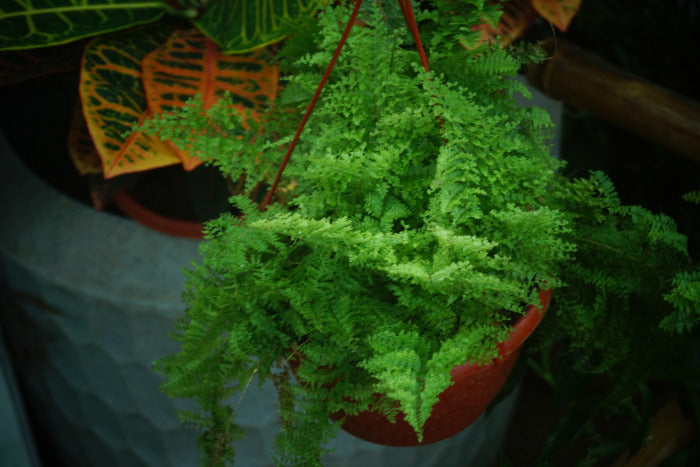
Article Detail
03 Dec
These 4 Herbs Can Protect Your Brain From Alzheimer’s, Depression, Anxiety And Much More
More than ever before, we live under an enormous pressure of our hectic schedules.In our endeavor to successfully fulfill the numerous obligations, in a perpetual race with time, our bodies and minds are in a state of chronic stress.
The ongoing technological advancement makes our lives easier to some degree. On the other hand, our brains have to process lots of new pieces of information on a daily basis. We are also continually exposed to electromagnetic radiation, which can lead to sleep disturbances, raised levels of anxiety and susceptibility to depression.
It is no wonder that the number of people affected by Alzheimer’s disease and mental illnesses is rapidly growing in the INDIA .Some patients have to begin taking pharmaceutical medications to treat these problems.
A long-term solution and prevention of these health problems should definitely be sought in a lifestyle change. We should all find ways to relax our overloaded brain and spend more time being physically active in a clean, natural environment.
Another way to calm the nervous system and reduce stress levels is to turn to herbal remedies.Here are some herbs with clinically proven abilities to reduce stress, relieve depression and anxiety and to boost our mental capacities.
Rosemary- Rosmarinus officinalis, or “Dew of the Sea”
This evergreen, perennial plant with leaves like needles and small pastel-colored flowers has been used for hundreds of years as a folk remedy for improving memory.
It has a specific fresh and sweet fragrance that cannot leave you indifferent.It was even mentioned by Ophelia, one of Shakespeare’s famous characters, with these words: ” There’s rosemary, that’s for remembrance.”
It seems that scientific evidence for this property of rosemary is receiving strong validation among acclaimed scientists.Professor Mark Moss from the University of Northumbria and his team conducted an interesting experiment whose purpose was to test the effect of rosemary oil on future memory.
60 participants of advanced age were asked to spend time in rooms filled with rosemary oil scent and two other types of oils. After a certain period, their memory was checked in a series of tests.
The volunteers who were exposed to the rosemary oil infusion achieved drastically better results than the others.The compound responsible for this improvement in memory is called 1,8-cineole and its actions are similar to those of the medicament for treating dementia.
So, whether you choose to use rosemary as a fragrant and enriching addition to your dishes, to prepare a hot beverage from its leaves or use it in the form of oil, the benefits this plant provides are truly great.
Apart from its ability to reduce stress, act against inflammation and the harmful free radicals, it is also a good source of vitamin B, calcium and iron.
Peppermint – Mentha Piperita
Is there a better way to refresh your breath, soothe stomach problems and invigorate your whole being than chewing on mint leaves and drinking mint tea?
But the provisions of this amazing plant do not end here. Actually, you do not even need to ingest peppermint to experience its benefits.
The results of a study lead by Dr. Bryan Raudenbush from Wheeling Jesuit University have shown that inhaling the peppermint aroma boosts important brain functions to a great extent. These skills included the ability to reason, solve problems, form concepts, make judgments, and memorize things. At the same time, this has led to reduced levels of anxiety, increased feeling of calmness and lower fatigue in participants of the study.
According to Raudenbush, inhaling peppermint aroma leads to the rise of oxygen levels in the blood and also in blood pressure, which refreshes and arouses our body and mind.
These findings were further confirmed by other studies, like the one published in the International Journal of Neuroscience.
Ginkgo – Ginkgo Biloba, also known as Maiden hair-tree
This age-old tall tree with interesting fan-shaped leaves and round yellowish fruits has been utilized for its medicinal properties for centuries. It is full of antioxidants, called terpenoids, which protect all the organs from damage and promote the health of the cardiovascular system.
It is especially renowned for its success in treating poor blood circulation and memory improvement. It is also popularly called “the brain herb”, due to its proven positive effects on the brain function.
Several studies have confirmed that patients with dementia experienced improvements in their memory after taking daily ginkgo biloba supplements. Not only does gingko enhance circulation and oxygen flow to the brain, but there are suggestions that it even nurtures nerve cells affected by dementia. Moreover, it was found that it could work similarly to some medications that are supposed to ward off early symptoms of Alzheimer’s.
But that is not all: gingko extract contains a substance that could treat anxiety disorders, according to the results of one initiatory study.
Last but not least, gingko has also shown an ability to preserve eye health, especially in people who suffer from macular degeneration. This health problem is typically related to advanced age and it leads to gradual deterioration of eye sight.
Ginseng – Panax Quinquefolius
This plant has the proven anti-inflammatory, mood-enhancing and brain-boosting properties.The Asian sort of ginseng, also known as Panax ginseng, has the highest concentration of healing components.
People affected by Alzheimer’s disease who took daily supplements of ginseng in the duration of three months have experienced enhancement in their cognitive functions. This finding has been approved by scientific research.
Ginseng can also be used as a safe natural alternative for treating disorders such as ADHD and ADD, due to the positive effects it has on them.
A word of warning
If you are receiving regular medical therapy, you should consult your physician before you begin taking any sort of herbal supplements as they can seriously interact with some types of medications.


